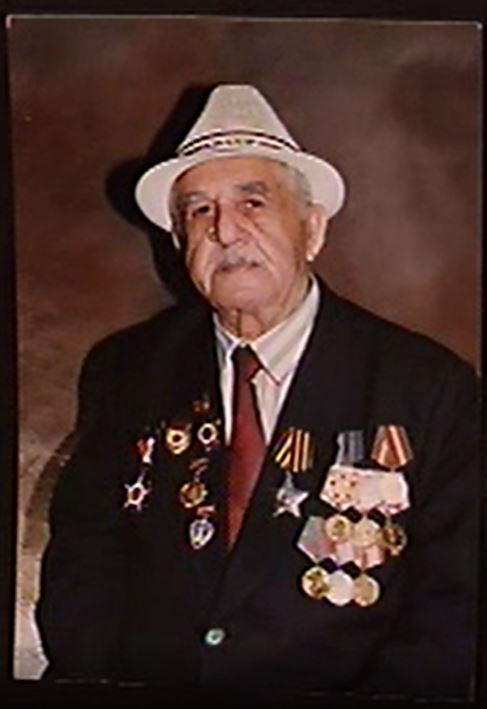Rafail Zirkiyev was born in 1920 in Dushanbe, Tajikistan, in a Tajik-speaking family of Bukharan Jews. Rafail's mother died in 1930, and his two sisters died in their childhood; thus, he himself was brought up in an orphanage. After finishing seven classes of school, he began to study to become a dental technician. However, in 1940 he was drafted into the Red Army. Rafail underwent his military training in Krasnodar in the North Caucasus, as an infantry man. Following the outbreak of the Soviet-German War in June 1941, his 442nd Rifle Regiment was transferred first to the Crimea, and then to northern Ukraine, where it tried to halt the German advance. However, the regiment was forced to retreat from Polesia in a southeasterly direction, and in September 1941 its remnants were surrounded and captured by the Germans in the area of Kremenchuk. Zirkiyev found himself in the huge POW camp in Uman, where the mortality rate among the inmates was very high. In captivity, Zirkiyev passed himself off as a Muslim Tajik, a carpenter by profession; these two fabrications saved his life.
Zirkiyev managed to escape from forced labor, and he was sheltered in a Ukrainian village. The Germans recaptured him in early 1944; however, because of the manpower shortages, they sent him to the Crimea to build fortifications. There, Zirkiyev was able to escape once again, and was hidden by a Crimean Tatar woman; several days later, in April 1944, the area was liberated by the Red Army. Zirkiyev reported to the recruitment office in Bakhchisaray, and was subjected to a screening. In the end, he was rehabilitated and allowed to reenlist the Red Army, where he kept his "Tajik" identity.
In the Soviet Army, Zirkiyev completed a course for snipers, and he went on to serve in this capacity with the 24th Guards Rifle Division in Belarus and Lithuania in mid-1944. He recollects 1 that his commanders initially mistrusted him because of his status as a member of an ethnic minority (Tajik), and a former POW besides. A "supervisor" was assigned to watch over him and evaluate his sniping skills. Zirkiyev proved to be a good sniper, and, after the fighting in Lithuania in September 1944, he was awarded the Order of Glory, 3rd class. In December 1944-January 1945, Zirkiyev saw action in East Prussia. He was lightly shell-shocked on January 3, but returned to active duty several days later. On January 12, he engaged in hand-to-hand combat with the enemy; after the platoon commander had been killed, Zirkiyev assumed command of the unit. He was then seriously wounded in the stomach and in the leg. While the painful stomach wound healed relatively quickly, the leg wound forced Zirkiyev to spend a long time in hospitals and undergo several surgeries. It was in one of the hospitals that he met V-E Day. He recalls2 that, upon learning of the end of the war, he got up and danced in the ward, even though his leg still needed a long time to heal after the latest operation.
Zirkiyev continued his military service in the postwar period. He was discharged only in 1947, whereupon he returned to Dushanbe. He worked as a photographer. He recalls that the most intense antisemitism he had ever experienced was in the early 1990s, after Tajikistan had gained independence. In 1994, Zirkiyev immigrated to the USA, settling in New York City.







